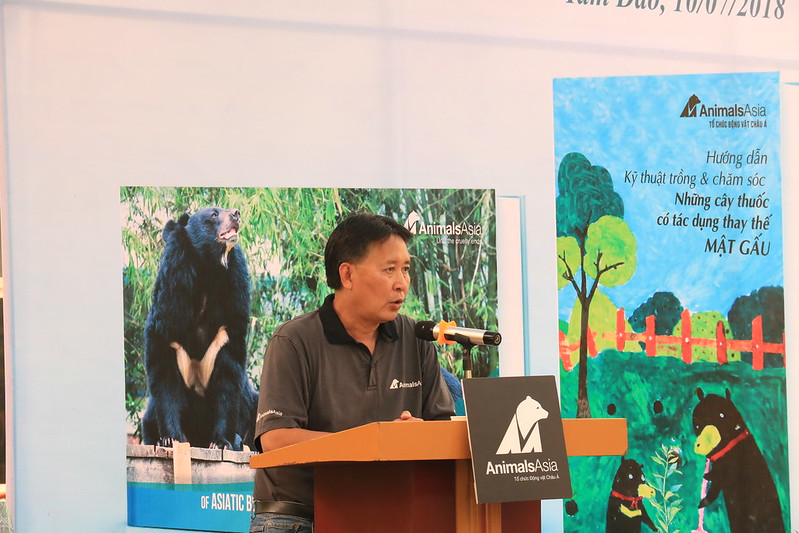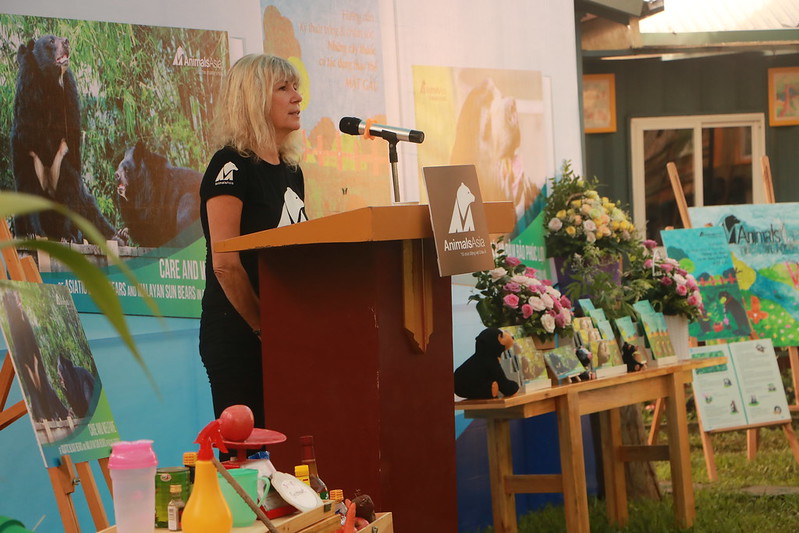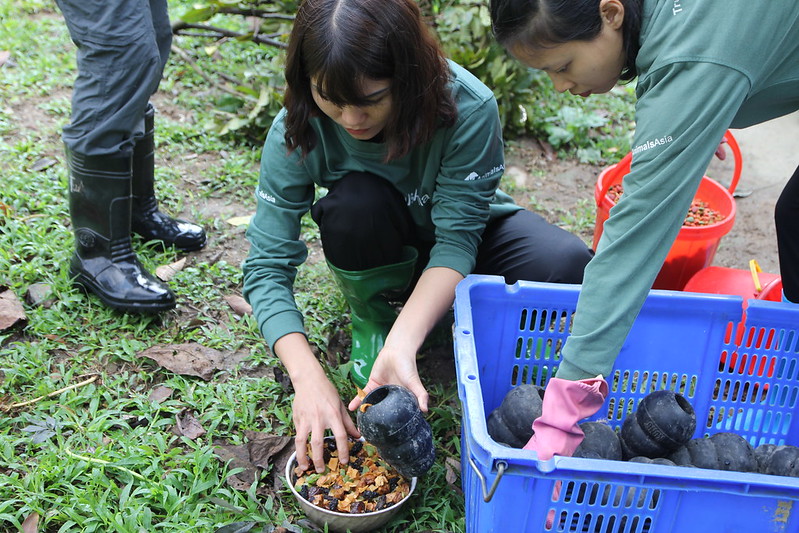Vietnam gets serious about wildlife crime with double launch of books designed to end bear bile farming
10 July 2018

Media and government officials were in Animals Asia’s Vietnam Bear Rescue Centre in Vinh Phuc province Tuesday to mark the launch of two publications designed to help the country eradicate bear bile farming.
The two books – a guide to caring for rescued moon bears and sun bears, and instructions on how to plant herbal alternatives to bear bile – are the result of Animals Asia’s commitment to establish a roadmap to end bear bile farming and preserve the fragile population of wild bears in Vietnam.
Animals Asia’s Vietnam Director Tuan Bendixsen said:
“Vietnam has shown that it is committed to ending bear bile farming and as the government’s main partner Animals Asia is doing everything in our power to see that the transition happens smoothly and to schedule.
“It’s important that current users of bile are aware of the alternatives and are able to grow the medicines themselves cheaply and easily. Equally, to rescue the hundreds of bears currently on farms, rescue centres around the country need to be held to a minimum standard of care which will secure the bears’ long-term welfare. These two books make both of these goals possible.”
Vietnam’s Forestry Department signed a legally binding contract with Animals Asia in summer 2017 which will see every bear bile farm in the country close and all bears transferred to sanctuaries by 2022.
Animals Asia Founder and CEO, Jill Robinson MBE said:
“Caring for traumatised bears and providing the environment, diet and welfare they need isn’t easy. But having rescued over 600 bears in Vietnam and China, we have a vast amount of experience and knowledge to share with our partners in government and our fellow animal welfare charities.
“Animals Asia and the government are leading the campaign to end bear bile farming, but it is absolutely vital that every stakeholder is involved. No single organisation has the resources to rescue this number of bears, but together we can realise the dream of a bear bile free future Vietnam. Today the dream got one step closer.”
An official count is still ongoing, but the latest figures suggest between 800 and 900 bears are currently held on bile farms in Vietnam.
Most are held on small-scale family plots holding two or three bears.
The landmark contract between Animals Asia and the Vietnam government was cited as a key part of the Southeast Asian nation’s efforts to eradicate the market for illegal wildlife products following the 2017 Hanoi Conference on the Illegal Wildlife Trade.
As part of the agreement, Animals Asia has been tasked with improving the capacity of Vietnam’s existing rescue centres to enable them to receive and provide adequate welfare for newly rescued bears.
In March 2018, staff from government shelters took part in a week of training at Animals Asia’s Vietnam Bear Rescue Centre.
The visiting staff from Pu Mat and Hoang Lien wildlife rescue centres learned about husbandry routines, enrichment, bear behaviour, integrations, nutrition, record keeping and how to behave around bears in order to mitigate stress.
Animals Asia’s team also visited the Hoang Lien rescue centre to integrate two rescued bears – known as Vi Hoa and Da Hoa – to further boost welfare.
Animals Asia started rescuing bears in Vietnam in 2006. Currently, 173 rescued bears are being cared for and rehabilitated at the charity’s Vietnam Bear Rescue Centre in Tam Dao National Park, Vinh Phuc Province.
READ MORE:
Vietnam agrees plan to close all bear bile farms
Explained: The roadmap to ending bear bile farming in Vietnam
Reaction: how the plan to rescue 1,000 bears was received
BACK






